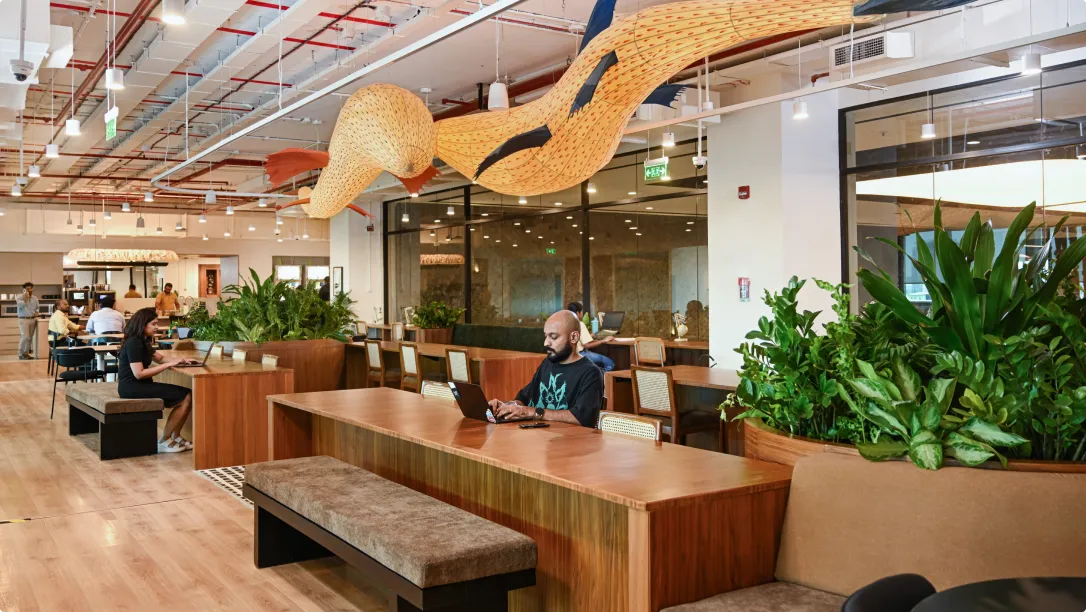NEWS & INSIGHTS
The Science of Conducting Effective Meetings in the Workplace

Learn how to run effective meetings in the workplace. Discover tips on preparation, structure, and follow-up to make your meetings more productive and engaging.
Meetings are a big part of how a company works. They help people share ideas, make plans, and fix problems together. But not every meeting is useful. Some meetings waste time. People can sometimes leave a meeting feeling annoyed or confused. The good news is, it doesn’t have to be like that. If done the right way, meetings can be really helpful and make the team work better. Let’s look at how to have good meetings can make the best use of everyone’s time.
What makes a meeting effective?
A good meeting is one in which:
- Everyone understands why they are there.
- The meeting remains on track.
- Individuals have a chance to speak and hear.
- Decisions or next steps are made clearly.
- Time is well utilised.
Also read: What is workplace flexibility
Preparation is the key before the meeting
A meeting's success begins even before the meeting takes place. The following are some key things to do before the meeting:
Set a clear purpose
Ask yourself, "Why are we having this meeting?” Is it to make a decision, provide updates, or brainstorm? Having the purpose in mind, you can prepare better.
Create an agenda
Write down the points to discuss. This is referred to as an agenda. Give it to all the attendees before the meeting. This assists in preparing individuals and keeping them on point.
Invite the right people
Invite only those who need to be present. If an individual is not engaged in the subject, they don't need to attend.
Choose a good time and place
Choose a time when people are free and alert. Mornings are often better. Also, pick a quiet place with a good setup, like a smart meeting room.
Also Read: Meeting Room Etiquette: Best Practices for a Professional Workplace
During the meeting, keep things on track
Once the meeting starts, it’s important to stay focused. Here are some tips to conduct effective meetings:
Start on time
Be respectful of people's time by starting the meeting at the planned time. This is a great way to get started.
Adhere to the agenda
Stay with the items as outlined in the agenda. If any new issues arise, write them down and address them afterwards.
Allow everyone to be heard
Avoid having one individual dominate the discussion. Everyone needs to feel welcome to contribute their opinions.
Take notes
Note the key points, ideas, and conclusions. Such notes are known as "minutes", and they assist individuals to recall what transpired.
Close with action steps
Each meeting ought to close with definite tasks or follow-up. Who will do what, and by when? Ensure everyone involved knows about these things.
Following the meeting: follow-up
Meetings do not conclude when the individuals leave the room. The follow-up is equally crucial.
Circulate the notes
Send the meeting minutes to all the participants. This serves as a reminder of what was discussed and what they should do.
Check on progress
Check a couple of days later to see whether the tasks are being accomplished. This gets everyone back on track.
Ask for feedback
Every so often, ask your team members whether they find meetings useful. How can you improve? This assists you in conducting even better meetings down the line.
Conclusion
Where you meet is as important as the way you conduct it. Somewhere quiet, comfortable, and well-equipped can make all the difference. That's why WeWork shared office spaces are a great option. WeWork provides you with up-to-date meeting rooms, high-speed internet, and trendy spaces that assist you in conducting better and more effective meetings. Whether you require a small space to have a quick chat or a large space for necessary team discussions, WeWork offers it all to ease and improve the meetings.
Related Blogs:

NEWS & INSIGHTS
The world of finance saw a drastic shift in its functional trajectory the moment it was hit by the wave of AI. Like all the other fields of commerce,


